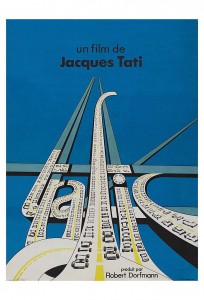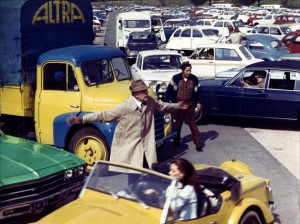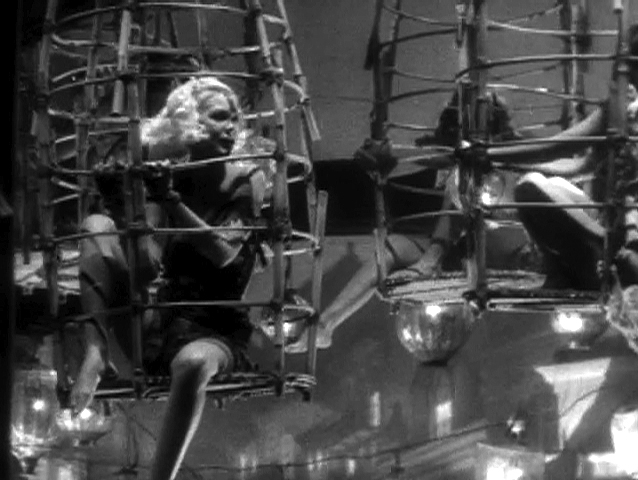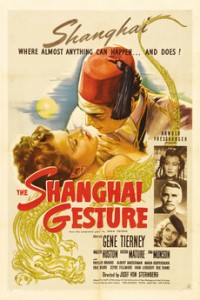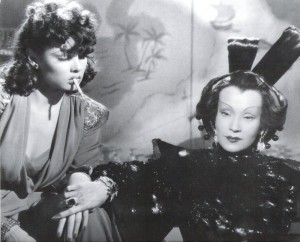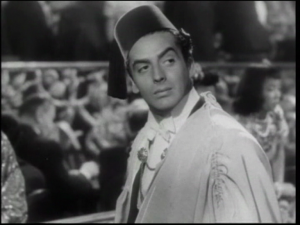TRAFIC
Written in 2013 for a 2019 Taschen publication. — J.R.
Trafic
1. The Reluctant Return of Monsieur Hulot
“On the basis of my intentions, Trafic could have been shot before PlayTime,” Tati said to me in late 1972, when I met him for the first time, only a couple of weeks before Trafic opened in the U.S. And the reason why he felt that way about his fifth feature was directly related to his most famous character, Monsieur Hulot.
As far as his own intentions were concerned, Hulot was a character he had invented strictly for the purposes of a single feature, Les Vacances de Monsieur Hulot. The main reason why he reappeared in Tati’s next three features was public demand. If it had been left up to Tati and his own inclinations, Hulot would have vanished after that one film, but the audience’s affection for that figure wouldn’t allow it; Hulot, after all, was better known and more familiar to the public than Tati himself was. So his creator reluctantly brought him back in Mon Oncle, and even gave him the title role a second time. But on this second occasion, one might say that Hulot existed again only as a function and contrast to the other characters — an eccentric relative of the Arpel family, and in some ways an alternative father figure for a little boy. Read more

